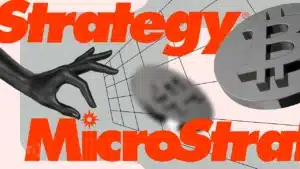Hedge Fund Manager Reveals How ETFs Control Bitcoin Price

Prominent hedge fund manager Mark Yusko has given a rare glimpse into the sophisticated strategies used by exchange traded funds (ETFs) to manipulate the value of Bitcoin.
This scam is not a new phenomenon, but a long-standing practice rooted in Wall Street history and adapted to the cryptocurrency market.
How ETFs control the value of Bitcoin
At the core of Yusko's analysis is the systematic manipulation of Bitcoin. This practice echoes the age-old Wall Street scheme of cutting prices to buy low. In particular, Yusko details how entities can drive up Bitcoin prices through negative sentiment or direct market action, causing further accumulation at the depressed price.
This method is not only widespread, but also suggests that it has been perfected for decades in traditional markets.
“Prices dropped 10% overnight because there is a lot of fraud in the futures market… what do you do if you want to buy a lot? You sell. You tell everyone how much it smells, you short it, you lower the price so you can buy more at a lower price,” Yusko explained.
Yusko's narrative takes a deeper dive when discussing how Bitcoin ETFs work. It points to a unique pattern in which significant price movements in Bitcoin occur outside of traditional trading hours.
Read more: How to trade Bitcoin ETF: A step-by-step approach
According to him, this unusual situation can be attributed to the strategic actions of large institutional players. They manipulate the closing price of the Bitcoin ETF, which subsequently affects the overnight valuation of the asset. This fraud ensures that these parties make a profit by amassing price differences created by their own actions.
All the gains in Bitcoin ETFs happen overnight…none of them happen during the day because what is happening before the close is the big dogs selling their positions in the futures market. They are pushing the price; ETFs should be bought; You can only trade at the last minute of the day,” Yusko added.
This strategy uses the futures market, which does not require actual Bitcoin holdings to trade. Bitcoin futures contracts allow traders to speculate on future prices. Therefore, they affect the current price without the need for physical exchange.
This isolation from physical assets allows for market manipulation through speculative trading. Of course, Bitcoin's real supply and demand volatility is skewed.
“If I want to sell you Bitcoin, all I have to do is write you a contract. And we're good as far as getting bitcoins before that contract expires,” Yusko emphasized.
Moreover, this calculated effort comes from large institutional players to manage the dynamics of supply and demand, the hedge fund manager points out. This procedure ensures that institutions can secure bitcoins at a reasonable price, which affects their leverage in the market.
Read more: Who will have the most Bitcoins in 2024?
In essence, Yusco's insights reveal complex market manipulation. Traditional strategies are getting a new life in the cryptocurrency market. By understanding these strategies, investors can better adapt their investment strategies, knowing that what appears to be a market whisper may actually be the oldest trick in the book.
Disclaimer
Adhering to the Trust Project guidelines, BeInCrypto is committed to unbiased, transparent reporting. This news report aims to provide accurate and up-to-date information. However, readers are advised to independently verify facts and consult with professionals before making any decisions based on this content. Please note that our terms and conditions, privacy policies and disclaimers have been updated.













